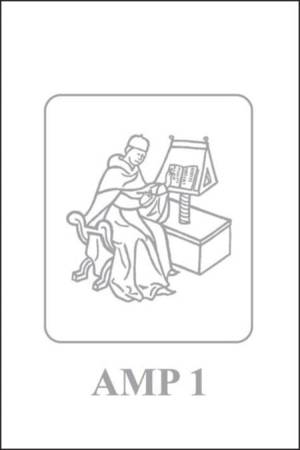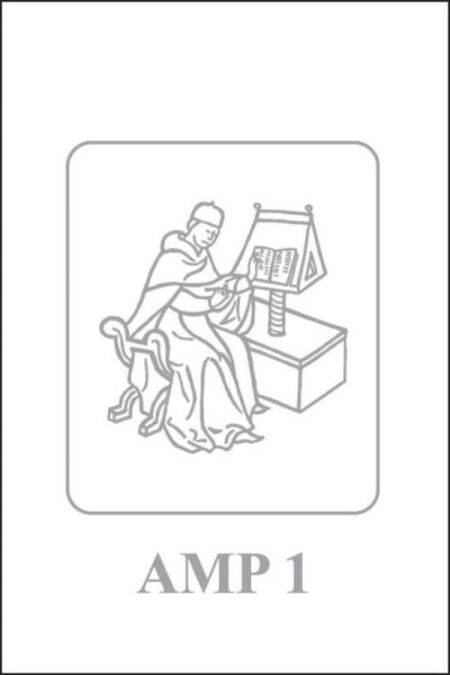
- Afhalen na 1 uur in een winkel met voorraad
- Gratis thuislevering in België vanaf € 30
- Ruim aanbod met 7 miljoen producten
- Afhalen na 1 uur in een winkel met voorraad
- Gratis thuislevering in België vanaf € 30
- Ruim aanbod met 7 miljoen producten
Zoeken
La puissance de l’intelligible E-BOOK
la théorie plotinienne des Formes au miroir de l’héritage médioplatonicien
Alexandra Michalewski
€ 62,00
+ 62 punten
Omschrijving
La nature des Formes intelligibles d'Antiochus à Plotin.
L'ouvrage propose une histoire de l'interprétation de la nature des Formes intelligibles d'Antiochus à Plotin. Il met en lumière l'importance du refus plotinien de l'artificialisme médioplatonicien qui considère les Formes comme des pensées du dieu et subordonne leur causalité à celle du démiurge, fabricant du monde. En considérant les Formes comme des réalités vivantes et intellectives, Plotin bouleverse le sens de la causalité paradigmatique de l'intelligible. Il reprend les concepts de la théologie aristotélicienne, les détourne et les met au service d'une théorie de la causalité des intelligibles qui répond aux objections du Stagirite contre l'hypothèse des Formes. S'appuyant sur l'identité de l'intellect et des intelligibles, il montre que c'est précisément en restant en elles-mêmes que les Formes exercent une puissance générative, productrice du sensible.
The nature of intelligible Forms from Antiochus to Plotinus.
The nature of intelligible Forms received different interpretations from various ancient Platonists. This book sketches the history of these interpretations from Antiochus to Plotinus and shows the radical transformation this theory underwent in the hands of the latter. Pre-Plotinian Platonists considered the Forms as "thoughts of god" and made the causal role of the Forms depend on the craftsman-god. Plotinus rejected this "artificialist" model. Instead he considered the Forms as living and intellective realities and thereby turned the paradigmatic causality of the intelligible on its head. The Forms are themselves active and the demiurge is no longer needed as a causal agent separate from the Forms. Plotinus incorporated key concepts of Aristotelian theology and included them in a doctrine of the causality of the Forms, thus overcoming Aristotle's objections against Platonic Forms.
L'ouvrage propose une histoire de l'interprétation de la nature des Formes intelligibles d'Antiochus à Plotin. Il met en lumière l'importance du refus plotinien de l'artificialisme médioplatonicien qui considère les Formes comme des pensées du dieu et subordonne leur causalité à celle du démiurge, fabricant du monde. En considérant les Formes comme des réalités vivantes et intellectives, Plotin bouleverse le sens de la causalité paradigmatique de l'intelligible. Il reprend les concepts de la théologie aristotélicienne, les détourne et les met au service d'une théorie de la causalité des intelligibles qui répond aux objections du Stagirite contre l'hypothèse des Formes. S'appuyant sur l'identité de l'intellect et des intelligibles, il montre que c'est précisément en restant en elles-mêmes que les Formes exercent une puissance générative, productrice du sensible.
The nature of intelligible Forms from Antiochus to Plotinus.
The nature of intelligible Forms received different interpretations from various ancient Platonists. This book sketches the history of these interpretations from Antiochus to Plotinus and shows the radical transformation this theory underwent in the hands of the latter. Pre-Plotinian Platonists considered the Forms as "thoughts of god" and made the causal role of the Forms depend on the craftsman-god. Plotinus rejected this "artificialist" model. Instead he considered the Forms as living and intellective realities and thereby turned the paradigmatic causality of the intelligible on its head. The Forms are themselves active and the demiurge is no longer needed as a causal agent separate from the Forms. Plotinus incorporated key concepts of Aristotelian theology and included them in a doctrine of the causality of the Forms, thus overcoming Aristotle's objections against Platonic Forms.
Specificaties
Betrokkenen
- Auteur(s):
- Uitgeverij:
Inhoud
- Aantal bladzijden:
- 280
- Taal:
- Frans
- Reeks:
Eigenschappen
- Productcode (EAN):
- 9789461661708
- Verschijningsdatum:
- 7/04/2017
- Uitvoering:
- E-book
- Beveiligd met:
- Digital watermarking
- Formaat:

Alleen bij Standaard Boekhandel
+ 62 punten op je klantenkaart van Standaard Boekhandel
Beoordelingen
We publiceren alleen reviews die voldoen aan de voorwaarden voor reviews. Bekijk onze voorwaarden voor reviews.








